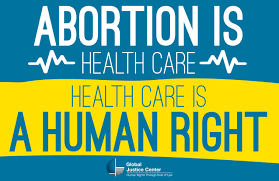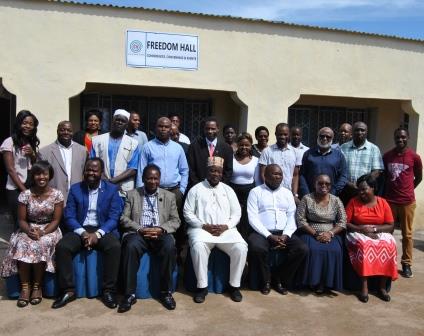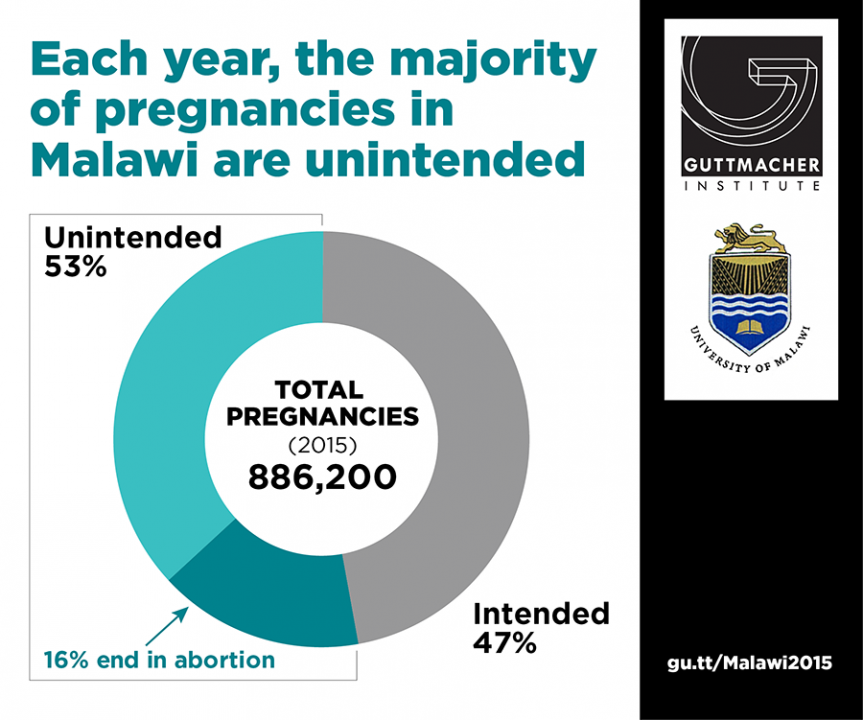

As the world commemorates International Safe Abortion Day today on September 28, there is need to seriously reflect on whether complete prohibition and condemnation of access to safe abortion is in line with scriptures.
I believe such reflection is needed in countries like Malawi which at the moment is debating whether to liberalise its abortion laws or not. The debate has become intense as the state-run Malawi Law Commission has drafted a proposed Termination of Pregnancy Bill which is embedded in a report it has submitted to Ministries of Justice and Health.
What remains now is for the two ministries to present the proposed Termination of Pregnancy to cabinet before tabling it in Parliament.
When enacted by Parliament, hundreds of women who die due to the current strict anti-abortion law, will have access to safe abortion services and thereby reduce the country’s high maternal mortality rates. By the way up to 18 of all maternal deaths in Malawi are due to unsafe abortion.
The death of a school girl in my home village who was raped and became pregnant and a question of whether rape victims should be allowed to access safe abortion in hospital prompted me to seriously reflect on this difficult question.
As a pastor, I know that sacred books such as the Bible in Christianity, the Quran in Islam, Talmud and Torah in Judaism are regarded as fundamental text of faith for believers.
Most sacred books were written long time ago and it is against this background that religious scholars interpret them so that they can be understood better.
The need to interpret the scriptures is even found in the Bible in Acts 8 in which we read that the spirit led Philip to the Ethiopian eunuch. When he heard him reading from the Prophet Isaiah, Phillip asked: “Do you understand what you are reading? The Ethiopian eunuch replied: “How can I understand unless someone explains it to me?”
The passage emphasises on the need to understand the word of God with the help of Biblical scholarship. This is the study and interpretation of the Scriptures to discover and understand their true meaning and message for us.
Scholars use two approaches to understand the scriptures. The first process is called Exegesis. This is the methodology of trying to discern what the writer of a particular text meant to convey, and what it means in the context of the passage and the particular letter or book. One Biblical scholar defined exegesis as “the interpretation of a text by way of a thorough analysis of its content in order to clarify its meaning. The main task in exegesis is to discover the original, intended meaning of a given text through careful, systematic study.”
The other process is hermeneutics, which is the study of the principles and methods of interpreting the text of the Bible. The most important law of biblical hermeneutics is that the Bible should be interpreted literally. We are to understand the Bible in its normal or plain meaning. The Bible says what it means and means what it says. When Jesus speaks of having fed “the five thousand” in Mark 8:19, the law of hermeneutics says we should understand 5000 literally—there was a crowd of hungry people that numbered 5000 who were fed with real bread and fish by Jesus Christ.
In other words, hermeneutics is about trying to understand what the text means in itself.
Many differences that are amongst denominations hinge on the approaches used in interpretation of the word of God.
In my view, understanding every word of God literally has its own demerits.

When for example Paul writes to the Church in Corinth: “It is shameful for a woman to speak in church…. What I am writing to you is a command of the Lord” (1 Corinthians 14.34). If this can be taken literally, we, female pastors can be removed from our positions.
Let me give another example. On slavery, the Bible in Titus 2:9 reads: “Tell slaves to be submissive to their masters and to give satisfaction in every respect….to show complete and perfect fidelity: so that in everything they may be an ornament to the doctrine of God our Saviour.”
Despite that such a verse is in the Bible, Christians nowadays do not keep slaves.
There are many verses in the Bible that one needs careful studying before jumping to conclusion. One area that needs careful study is that of sexuality and reproduction.
The story of our Lord Jesus Christ and the woman caught in adultery in
John 8:1-11 offers great lessons in compassion, love and forgiveness when dealing with issues of sex, sexuality and even reproduction.
The story reads in part: Jesus returned to the Mount of Olives, but early the next morning he was back again at the Temple. A crowd soon gathered, and he sat down and taught them. As he was speaking, the teachers of religious law and the Pharisees brought a woman who had been caught in the act of adultery. They put her in front of the crowd.
“Teacher,” they said to Jesus, “this woman was caught in the act of adultery. The law of Moses says to stone her. What do you say?”
They were trying to trap him into saying something they could use against him, but Jesus stooped down and wrote in the dust with his finger. They kept demanding an answer, so he stood up again and said, “All right, but let the one who has never sinned throw the first stone!” Then he stooped down again and wrote in the dust.
When the accusers heard this, they slipped away one by one, beginning with the oldest, until only Jesus was left in the middle of the crowd with the woman. 10 Then Jesus stood up again and said to the woman, “Where are your accusers? Didn’t even one of them condemn you?”
“No, Lord,” she said.
If presented with that situation which Jesus Christ face, how would we the modern religious clerics who rush to condemn that adultery is sin or abortion is murder react. When reflecting on the issue we should ask ourselves: How would Jesus Christ react upon learning that a 13-year-old girl who was raped and become pregnant has terminated her unwanted pregnancy. Would Jesus Christ condemn her? Would Jesus Christ accuse her of being a murderer? Why didn’t Jesus accuse the woman of being an adulterer? Why didn’t Jesus Christ condemn the woman for engaging in adultery?
I know the word abortion is not mentioned in the Bible. However, the Bible speaks to the issue with the most obvious passage being Exodus 21:22-25. The Bible explains the case of a pregnant woman who becomes caught up in a fight between two men and has ended up having a miscarriage.
A distinction is then made between the penalty that is to be exacted for the loss of the fetus and injury to the woman. For loss of the fetus, the punishment is just a fine determined by the husband and the judges. However, if the woman is injured or dies, lex talionis is applied, that is, life for life.
The story clearly makes a distinction between the woman and the fetus. The woman is valued as a person and the fetus is valued as property. The status of the fetus is certainly inferior to that of the woman. This passage gives no support to the parity argument that gives equal religious and moral worth to woman and fetus. The biblical portrait of person does not begin with an explanation of conception but with a portrayal of the creation of Adam and Eve. Thus, the biblical portrait of a person is that of a complex, many-sided creature with the God-like ability and responsibility to make choices.
Now on the tough question of whether a 13-year-old girl who is raped and gets pregnant should be allowed to terminate her pregnancy, my guidance is that the decision she makes – either to keep the pregnancy or even to terminate it – should be respected.
The story of Jesus Christ and the woman caught in adultery teaches us about God’s compassion, love and forgiveness.
The proposed Termination of Pregnancy Bill which Malawi government wants to enact should be looked at by Christians and even members of other faiths from the values of compassion and love. With research by University of Malawi’s College of Medicine and Guttmacher Institute showing that every year over 141,000 women and girls in Malawi terminate unwanted pregnancies, for various reasons even the church needs to reflect on this issue seriously. Today September 28, which is International Safe Abortion Day is the best time for making that reflection. – BY PASTOR JANET SAMAYA

